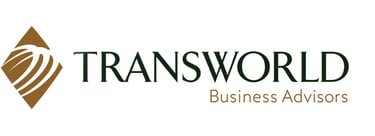Why Hiring a Broker Is the Smartest Choice When Selling Your Healthy Food Restaurant?
Maximize value and reduce stress when you sell your Healthy Food Restaurant by working with a broker who protects your interests every step of the way.
9/17/20254 min read


Running a successful restaurant that focuses on health-conscious cuisine is no small achievement. The surge in consumer demand for organic, plant-based, and nutrient-dense meals has created strong opportunities in this sector. But when the time comes to sell Healthy food restaurant businesses, owners often face overwhelming challenges. From valuing the establishment accurately to negotiating with buyers, each step requires expertise, patience, and precision. This is where the role of a professional broker becomes critical.
The Challenges of Selling a Healthy Food Restaurant
The process of transitioning ownership of a restaurant is rarely straightforward. Owners often underestimate the complexity of:
Determining fair market value.
Organizing detailed financial documentation.
Identifying qualified buyers genuinely interested in a healthy food model.
Negotiating favorable terms without compromising profitability.
Managing confidentiality throughout the sale.
Each of these elements demands not just general business knowledge but also industry-specific expertise. Healthy food restaurants operate in a niche where brand loyalty, supply chain integrity, and reputation play an outsized role in valuation. Attempting to navigate this without professional support often results in undervaluation or lost opportunities.
Why a Broker Becomes Essential
When owners attempt to sell directly, they tend to fall into one of two traps: either they overprice their restaurant, scaring away serious buyers, or they underprice it, leaving substantial money on the table. A broker offers an objective perspective, informed by experience with numerous transactions and a deep awareness of current market trends.
Beyond pricing, a broker acts as a trusted intermediary who shields owners from unnecessary stress. By handling inquiries, vetting potential buyers, and negotiating terms, brokers allow restaurateurs to continue focusing on operations until the deal is closed.
Accurate Valuation: The Foundation of a Successful Sale
Determining what a healthy food restaurant is worth involves more than tallying up profits and assets. Elements such as customer loyalty, location, brand recognition, digital presence, and even unique menu items contribute to the overall value. A broker uses proven methodologies that balance financial statements with intangible assets.
This precision ensures that the owner receives a fair price while still making the opportunity attractive to buyers.
The Power of Confidentiality
A common mistake restaurant owners make is openly discussing a sale with staff, suppliers, or even regular customers. News of a potential sale can trigger unnecessary rumors, which may hurt morale or even drive away loyal patrons. Brokers know how to maintain confidentiality by marketing the business discreetly, releasing details only to serious, pre-qualified buyers.
This layer of privacy protects the restaurant’s reputation and ensures business continues smoothly until ownership is transferred.
Access to Qualified Buyers
Healthy food restaurants attract a very specific type of buyer—individuals or groups who are not only financially capable but also aligned with the mission of serving healthier dining options. Brokers have established networks and databases of potential buyers who fit these profiles.
Instead of spending months advertising and fielding unqualified leads, a broker can connect owners with the right audience almost immediately.
Strong Negotiation Skills
One of the most underestimated aspects of selling is negotiation. Buyers will always attempt to lower the price or push for terms that favor their position. A broker steps into this arena with the confidence and skill to balance both parties’ interests while ensuring the seller achieves maximum value.
Without a professional negotiator, owners often concede too much, leaving behind significant potential earnings.
Saving Time and Reducing Stress
Running a restaurant is already a full-time commitment. Adding the responsibility of managing the sale often results in burnout and mistakes. Brokers handle the heavy lifting—paperwork, buyer screenings, due diligence coordination—freeing the owner to focus on keeping the restaurant profitable until the sale closes.
Legal and Financial Safeguards
Selling a restaurant involves contracts, licenses, leases, and permits. Mismanaging these details can lead to delays or even legal disputes. Brokers collaborate with legal and financial professionals to ensure that every document is in order and that no step is overlooked.
The Broker Advantage in Healthy Food Restaurant Sales
Healthy food restaurants are more than businesses; they are lifestyle brands. Their value lies not just in revenue but in the philosophy behind their offerings. Brokers understand this distinction and position the restaurant in ways that highlight:
Sustainable sourcing practices.
Strong community engagement.
Loyal health-conscious customer bases.
Growth potential in a booming market.
This narrative helps attract the type of buyers who are willing to pay a premium for an established, mission-driven restaurant.
Steps a Broker Handles During the Sale
Owners working with brokers benefit from a clear and structured process. A typical sale involves:
Initial Consultation: Reviewing goals, expectations, and financial details.
Valuation: Establishing a realistic and competitive asking price.
Preparation: Organizing financials, leases, licenses, and operational data.
Marketing: Strategically promoting the business while maintaining confidentiality.
Buyer Screening: Ensuring only serious, qualified buyers are considered.
Negotiation: Advocating for the seller’s best interests.
Closing: Coordinating legal and financial steps for a seamless handover.
Common Mistakes Owners Make Without a Broker
Overvaluing or undervaluing their restaurant.
Relying on public listings that attract unqualified leads.
Failing to maintain confidentiality can damage staff morale.
Neglecting day-to-day operations while focusing on the sale.
Lacking negotiation expertise and conceding too much in discussions.
Each of these mistakes can reduce the sale price or derail the process entirely.
Why Hiring a Broker Is a Long-Term Investment
Although brokers charge a commission, their involvement typically results in a higher sale price that more than offsets their fee. More importantly, they reduce the emotional toll on owners and ensure that the restaurant is transferred to someone who can carry its mission forward.
Selling a healthy food restaurant is not just about exiting—it is about ensuring the legacy of the brand and the trust built with loyal customers. A broker safeguards both the financial and emotional value of the business.
Why Choose Adam Lawson LLC?
When the time comes to sell a Healthy food restaurant, selecting the right partner can make all the difference. Adam Lawson LLC has built a reputation for handling sales with professionalism, discretion, and a deep respect for the businesses entrusted to us. Our focus is on maximizing value, ensuring smooth transitions, and connecting restaurants with buyers who appreciate both the profitability and purpose behind healthy dining.
Selling your restaurant is more than a transaction—it’s a turning point. With Adam Lawson LLC, you gain a partner dedicated to making that transition rewarding, seamless, and worthy of the work you’ve put into building your business.


